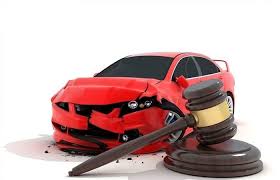The Three Biggest Claims Pitfalls of Car Accident Insurance

Victims are often overwhelmed after a car accident and this mentality is often exploited by insurance companies, but talking to an insurance adjuster after an auto accident can often lead to disastrous consequences. This article explains why victims should not talk to the other insurance company, and if the victim is bent on handling this important matter on his/her own, the accident victim is likely to make mistakes that will adversely affect his/her case.
First, the insurance agent will pretend to be friendly to trick the victim into information that is unfavorable to the victim.
When a person is injured in a car accident, the next important issue is determining who is legally responsible for the accident. Insurance company investigations tend to protect the financial interests of the insurance company. It will usually deny the claim and negotiate a settlement that pays as little as possible.
Once the insurance company is informed of the accident, it will conduct an investigation to determine which party is at fault and assign an insurance adjuster to the case. If both parties are responsible, it may share some degree of liability. If the victim receives an injury, the insurance adjuster will offer to settle the case, but this settlement may be less than the actual injury suffered by the victim. Because the insurance adjuster works for the insurance company, the company will not encourage the adjuster to help the victim get more money. The insurance adjuster may appear to be friendly to the accident victim and may pretend to be concerned about the victim's injuries, but this may only be an illusion designed to get the victim to fall into a trap and say things that will hurt his/her case claim.
Second, the insurance company will set a trap to undermine the victim's credibility.
The insurance adjuster will try to extract information from the accident victim to refute his/her claim. Many people are unaware of the tactics insurance adjusters may use. They openly communicate information to adjusters until they realize that what they are saying is being used against them. People by nature tend to be honest and expect others to treat them in the same manner.
While many people believe they know the laws pertaining to accident cases and think they can handle them properly on their own, this is often not the case. Before a victim can receive fair compensation, some legal recourse must be taken. However, there can be many legal pitfalls awaiting unsuspecting victims. Often, the insurance adjuster will ask the victim to make a statement for the record. The victim may come clean and tell everything. However, at a subsequent trial, the insurance company may present statements that are inconsistent with the transcripts and testimony. Attorneys representing the insurance company may try to use these inconsistencies to get the jury to question the victim's credibility so that they can defend the defendant rather than the victim.
Third, the insurance company may have the victim authorize medical records to deny the claim.
In addition to attempting to obtain information from the statement records against the victim, the insurance company may have the victim sign a medical release form. This form may give the insurance company the right to receive the victim's medical records. The release of these records is usually more informative and extensive than the forms necessary to file a claim. In addition, the insurance company may use information obtained from the process, such as based on having a prior record of injury, to deny the victim's claim.
Because insurance adjusters do not represent the interests of victims, it is usually best for accident victims not to speak directly with an insurance adjuster. They would be better off hiring an accident injury attorney to handle this task for them.
So when do you have to cooperate with the insurance company?
There are situations where an accident victim may have to cooperate with the insurance adjuster. For example, if he/she is in a no liability situation, he/she may have to report the accident to his/her own insurance company. He/she may be contractually obligated to talk to his/her own insurance company after an accident is involved. In a liability situation, the victim may be able to file an uninsured driver claim against his/her own insurance if the defendant is uninsured or underinsured. However, it is usually not necessary to speak with the other party's insurance adjuster.
So do you need the protection of an attorney?
People who have been injured in a car accident may choose to consult with an accident injury attorney. An attorney can explain how the victim should handle the case when it should be handled and how to communicate with the insurance company to help the victim not make moves that could adversely affect his or her case. An attorney can also handle negotiations with the insurance company to pursue a recovery.